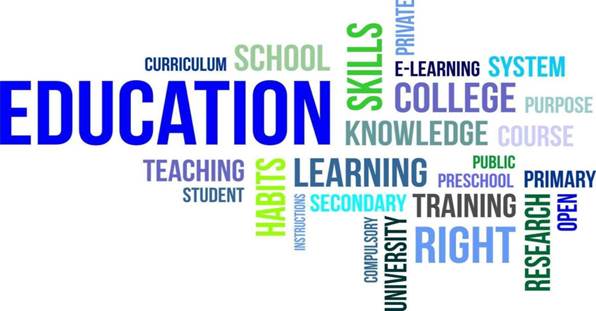Description

Copyright infringement not intended
In News
- Recently NCERT’s modifications in history, political science and sociology textbooks for Classes 6 to 12 have created a controversy.
- NCERT has removed the references to the 2002 Gujarat riots.
- Dropped passages that dealt with the Emergency’s impact on people and institutions.
- Removed chapters on protests and social movements, Narmada Bachao Andolan, Dalit Panthers, Bharatiya Kisan Union, etc.
- Nearly all references to Naxalism and the Naxalite movement have been deleted from social science textbooks.
The rationality behind the decision
- The CBSE officials stated that the changes are part of the rationalization of the syllabus and according to the proposals of the National Council of Educational Research and Training (NCERT).
- This is not the board's first drop of certain chapters from the syllabus. In 2020, CBSE announced that chapters on federalism, citizenship, nationalism, and secularism in class 11 political science textbooks will not be considered while assessing students.
- CBSE annually provides a curriculum for classes 9 to 12 containing a syllabus for examinations with learning outcomes. Therefore it is a regular exercise done by the Board to rationalise the syllabus according to the time and need.
Challenges in Indian Education System
- India has achieved universal enrolment at the elementary level. This is a great achievement, but getting Students to School is only the beginning of human Capital formation.
- Poor quality of facilities, Shortage of qualified faculty.
- Out of date Curriculum, Limited university-industry Partnership.
- Indian-origin Scientists have won the Nobel Prize, but post-independence work done in India has not led to a Science novel. If Indians Studying and working abroad can have a great impact, then obviously the problem has to do with our Systems of education and research.
- Broken governance System. There are few rewards for being a good teacher and few Punishments for being a Careless one. Need more effective and accountable governance Systems.
- The greed of Private Colleges to earn the maximum from every Student puts traumatic Pressure on Students which results in mental breakdown.
- More girls than boys drop out of School. While boys drop out to work, girls usually Stay at home and help with domestic Work. Social Conception of gender roles is an important factor.
- Learning loss due to pandemics and the digital divide.
Steps by the Government to reform Education Sector
- The 86th Constitution Amendment provides the Fundamental right to free and compulsory education under Article 21A includes a Common education System where the “rich and Poor are educated under one roof".
- Rashtriya Uchchatar Shiksha Abhiyan provides funding to eligible State higher educational institutions.
- Declaration of Educational Institutions as institutions of Eminence, to provide world-class education to Indian Students within the Country.
- Creation of Higher Education Financing Agency, for high-quality infrastructure in Premier educational institutions.
- National Institution Ranking Framework for ranking our higher education institutions.
- GIAN Initiative to invite distinguished academicians, entrepreneurs, scientists, and experts from premier institutions across the world to teach in higher educational institutions in India.
- SWAYAM Portal for online Courses.
- SWAYAM Prabha Provide HD educational Channels through DTH on a 24X7 basis.
- Sodhganga to develop a national repository of universities in India, and digital Study material for higher education.
- Samagra Shiksha Scheme to ensure inclusive and equitable quality education at all levels of school education.
https://indianexpress.com/article/express-exclusive/express-investigation-part-1-from-emergency-to-gujarat-riots-lessons-of-past-deleted-from-textbooks-of-future-7976207/
1.png)
https://t.me/+hJqMV1O0se03Njk9
















